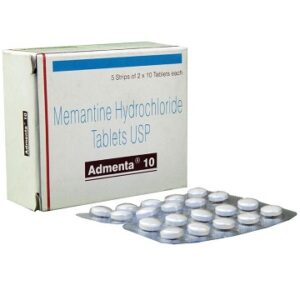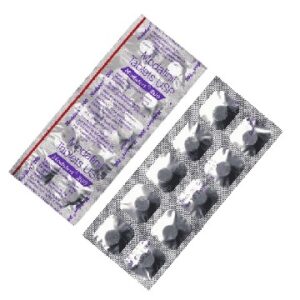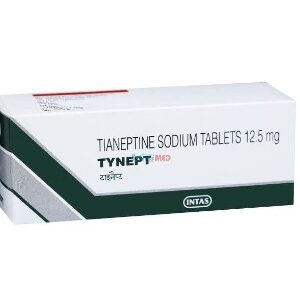Nootropics
Showing all 5 results
In today’s fast-paced world, maintaining mental acuity, focus, and productivity is essential for success in both personal and professional endeavors. While healthy lifestyle habits, such as adequate sleep, regular exercise, and balanced nutrition, play a crucial role in optimizing brain health, many individuals seek additional support to enhance cognitive function and performance. Nootropics, often referred to as “smart drugs” or “cognitive enhancers,” have gained popularity for their purported ability to boost memory, concentration, creativity, and overall mental clarity. In this article, we explore the world of nootropics, their mechanisms of action, common types, benefits, and considerations for use.
Understanding Nootropics
Nootropics are a diverse group of compounds, supplements, or drugs that have the potential to enhance cognitive function, improve memory, and support overall brain health. The term “nootropic” was coined by Romanian psychologist and chemist Dr. Corneliu E. Giurgea in the 1970s, who defined it as a substance that enhances learning and memory while exhibiting minimal side effects and a low potential for toxicity.
Mechanisms of Action
Nootropics exert their effects through various mechanisms, including:
- Increasing Neurotransmitter Activity: Many nootropics enhance neurotransmitter activity in the brain, particularly dopamine, serotonin, and acetylcholine, which are involved in mood regulation, memory formation, and cognitive processing.
- Enhancing Neuroplasticity: Nootropics may promote neuroplasticity, the brain’s ability to adapt and reorganize in response to learning and experience, by stimulating the growth of new neurons and synapses.
- Improving Cerebral Blood Flow: Some nootropics, such as Ginkgo biloba and vinpocetine, enhance cerebral blood flow, delivering oxygen and nutrients to brain cells and supporting overall brain function.
- Protecting Against Oxidative Stress: Nootropics with antioxidant properties, such as vitamin E, alpha-lipoic acid, and coenzyme Q10, help protect brain cells from oxidative damage caused by free radicals, aging, and environmental toxins.
Common Types of Nootropics
Nootropics encompass a wide range of compounds, each with its unique properties and mechanisms of action. Common types of nootropics include:
- Racetams: Racetams, such as piracetam, aniracetam, and oxiracetam, are synthetic compounds known for their cognitive-enhancing effects, including improved memory, learning, and concentration.
- Natural Nootropics: Natural substances like caffeine, L-theanine, Bacopa monnieri, and Rhodiola rosea have been shown to support cognitive function, mood, and stress management without significant side effects.
- Cholinergics: Cholinergics, including choline bitartrate, Alpha-GPC, and Huperzine-A, enhance the production and activity of acetylcholine, a neurotransmitter crucial for memory and learning.
- Adaptogens: Adaptogenic herbs like ashwagandha, Rhodiola rosea, and Panax ginseng help the body adapt to stress, improve mental resilience, and promote overall well-being.
Benefits of Nootropics
Nootropics offer a wide range of potential benefits for individuals seeking to optimize cognitive function and mental performance, including:
- Improved Memory and Learning: it may enhance memory consolidation, recall, and learning ability, allowing individuals to retain and process information more effectively.
- Enhanced Focus and Concentration: it can improve attentional control, mental clarity, and concentration, enabling individuals to maintain focus and productivity during demanding tasks or activities.
- Increased Mental Energy and Alertness: Some nootropics, such as caffeine and modafinil, provide a boost in mental energy, wakefulness, and alertness, reducing fatigue and enhancing cognitive performance.
- Stress Reduction and Mood Enhancement: Certain noots possess adaptogenic and anxiolytic properties, helping to alleviate stress, anxiety, and depression while promoting a positive mood and emotional well-being.
Considerations for Use
While nootropics offer promising benefits for cognitive enhancement and brain health, several considerations should be taken into account when using these substances, including:
- Individual Variability: The effects of nootropics can vary widely among individuals based on factors such as genetics, age, lifestyle, and underlying health conditions.
- Dosage and Timing: Nootropics should be taken at the appropriate dosage and timing to achieve optimal effects while minimizing the risk of side effects or tolerance development.
- Quality and Purity: It is essential to choose high-quality, reputable nootropic supplements from trusted manufacturers to ensure safety, efficacy, and consistency.
- Potential Interactions: It may interact with other medications or supplements, so it is important to consult with a healthcare professional before starting any new regimen, especially if you have underlying medical conditions or are taking prescription medications.
Conclusion: Nootropics offer a promising avenue for enhancing cognitive function, memory, and overall brain health. By targeting various neurotransmitter systems, promoting neuroplasticity, and supporting cerebral blood flow, these substances have the potential to optimize mental performance and well-being. However, it is essential to approach their use with caution, carefully considering individual needs, goals, and potential risks. With proper research, guidance, and responsible use, nootropics can be valuable tools for unlocking the full potential of the human brain and achieving peak cognitive performance.




